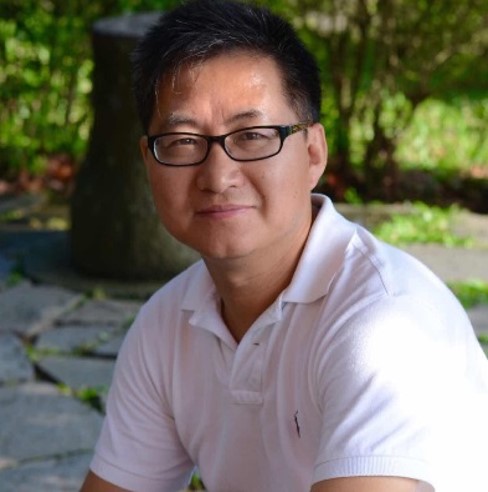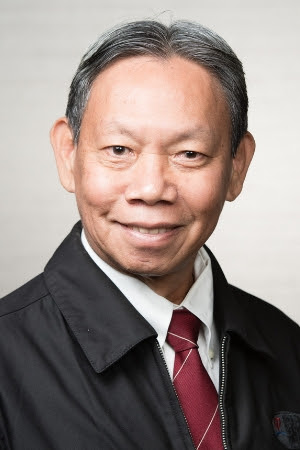
About
USDA FAS Jakarta and U.S. Grains Council (USGC) in collaboration with the Indonesian Dairy Cooperatives Union (GKSI), Food Export Association USA, and U.S. Dairy Export Council (USDEC) organized three half-day seminars in three cities located in Java island, which are the centers of production of Indonesia’s domestic fresh milk.
Two of the seminars was held in American Corners of the Muhammadiyah University in Yogyakarta and Bandung Institute of Technology, while the first seminar in the GKSI East Java Chapter Building in Malang.
Background
Most of Indonesia’s fresh milk is produced by dairy farmers who are the members of 59 dairy cooperatives, all located in the island of Java. The members of these dairy cooperatives annually produce 430,000 MT of fresh milk (2023 estimates) that accounts for 72 percent of Indonesia’s fresh milk production. However, the majority of the dairy cooperative members are smallholders dairy farmers that own on average 2-3 heads of cows yielding 8-12 liters/head/day. The low milk production highlights the challenges faced by the Indonesian dairy farmers in dairy genetic quality and feed availability. Besides struggling to provide forages, the dairy cooperatives are struggling to provide better concentrate feed to compensate the lack of forages availability and the long-term impact of last year’s FMD outbreak that drastically reduce milk production. Please see USDA FAS Jakarta’s report for more information on Indonesian dairy condition.
The seminar showed the Indonesian dairy cooperative members that higher quality can be achieved through improved feed management practices and the use of high-quality feed ingredients. Increased industry awareness of the U.S. feed ingredients and feed management techniques as well as sustainable farming practices can create a win-win situation by raising the capacity of local producers and creating stronger markets for U.S. inputs.
the seminars
The seminars took place in the week of January 22 – 26, 2024 in three Indonesian fresh milk main producing areas: Malang (East Java Province), Yogyakarta (Yogyakarta Special Region and Central Java Province), and Bandung (West Java Province). These seminars addressed potential competitiveness within the local dairy farming industry sectors using high-quality U.S. feed ingredients. Furthermore, the activity is aimed to improve the farming practices and production methods of the Indonesian dairy farming industry.
In total, 179 participants from the dairy cooperatives and academics attended the three seminars that were supported by the Indonesian Dairy Cooperatives Union (GKSI), U.S. Grains Council, U.S. Dairy Export Council (USDEC), and Food Export Association of the Midwest USA and Food Export USA – Northeast. American Corners of two universities: Muhammadiyah University in Yogyakarta, and the Bandung Institute of Technology in Bandung also participated by providing the venues as well as organizing the logistics of the seminars.
Journalists from an Indonesian livestock publications and a newspaper covered the seminars, which provided reach out to wider Indonesian public regarding the existence and activities of USDA and USDA cooperators in Indonesia. The coverage is also expected to create positive image of U.S. government activities in Indonesia and enhance the future partnership between the United States of America and the Republic of Indonesia partnership in the field of agriculture.
During the seminars, participants enthusiastically discussed the use of US feed ingredients in their dairy cattle feed formulation and their integration with the currently used local ingredients in order to obtain the best nutrition benefit to maintain the good health of the dairy cows and increase the quality and quantity of their milk. Constrain in obtaining forages was also discussed with the speakers suggesting the use of other feed sources including U.S. alfalfa and corn silage as the alternative solution to overcome the forages scarcity.
The Indonesian Dairy Cooperatives Union (GKSI) welcomed the seminar and urged the dairy cooperatives to use the opportunity to consult their feed formulation with the speakers. More future seminars of the same topic was also proposed by GKSI board members attending one of the seminars. At least one dairy cooperative in East Java discussed the possibility of importing feed ingredients with Food Export USA representatives to support their feed production that is not only used domestically but has also been exported to Brunei.
The Speakers
 Dr. Walter Chen specializes in dairy nutrition and large herd management. He founded Beijing Kaihang Management Consulting Co. Ltd. in 2013. He and his team of consultants are providing dairy nutrition/management services and cloud bases dairy data management services to many dairy farms across China. Dr. Chen has also conducted numerous dairy seminars and is frequent invited speakers to many dairy meetings. He is well-known in the dairy industry because of his involvement in the USGC China dairy training program, Cornell China Dairy Institute and US Sino Veterinary Training School. Dr. Chen has been the professional member of American Dairy Science Association since 1990 and a certified professional animal scientist by American Registry of Professional Animal Scientists (ARPAS).
Dr. Walter Chen specializes in dairy nutrition and large herd management. He founded Beijing Kaihang Management Consulting Co. Ltd. in 2013. He and his team of consultants are providing dairy nutrition/management services and cloud bases dairy data management services to many dairy farms across China. Dr. Chen has also conducted numerous dairy seminars and is frequent invited speakers to many dairy meetings. He is well-known in the dairy industry because of his involvement in the USGC China dairy training program, Cornell China Dairy Institute and US Sino Veterinary Training School. Dr. Chen has been the professional member of American Dairy Science Association since 1990 and a certified professional animal scientist by American Registry of Professional Animal Scientists (ARPAS).  Dr. Budi Tangendjaja is a well-known animal nutritionist and feed mill expert in Indonesia. He had worked as Research Scientist for the Indonesian Research Institute for Animal Production in Bogor, Indonesia for more than 35 years and received consulting job with ASA IM for 15 years before joining U.S. Grains Council for the last 22 years to cover technical services in Southeast Asia. Dr. Budi has many research interests including raw material quality control, development of alternative ingredients, feed additives, processing of animal feed, animal nutrition and feed mill management. In the last two decades he has traveled extensively to several countries in Southeast Asia, South Asia and other countries to deliver talks and teach in seminars and workshops.
Dr. Budi Tangendjaja is a well-known animal nutritionist and feed mill expert in Indonesia. He had worked as Research Scientist for the Indonesian Research Institute for Animal Production in Bogor, Indonesia for more than 35 years and received consulting job with ASA IM for 15 years before joining U.S. Grains Council for the last 22 years to cover technical services in Southeast Asia. Dr. Budi has many research interests including raw material quality control, development of alternative ingredients, feed additives, processing of animal feed, animal nutrition and feed mill management. In the last two decades he has traveled extensively to several countries in Southeast Asia, South Asia and other countries to deliver talks and teach in seminars and workshops.
Dr. Budi Tangendjaja can be reached through his email: [email protected].
Seminar Materials
Dr. Walter Chen:
Key Challenges in Dairy Farming Within Southeast Asia (pdf – 3.5 MB)
Dairy Ration Optimization to Improve Milk Production (pdf – 2.7 MB)
Dr. Budi Tangendjaja:
Introduction of DDGS for Dairy Feed (pdf – 1.3 MB)
Quality Consideration of Local Ingredients for Dairy (pdf – 3.2 MB)
Useful Links
The seminars in the news:
Farmers Must Understand Feed Formulation to Increase Productivity (in Indonesian Language) – Radar Malang Newspaper
Feed Reformulation Optimizes Dairy Cows Productivity (in Indonesian Language) – Trobos Livestock Magazine
The sponsors:
The Indonesian Dairy Cooperatives Union / Gabungan Koperasi Susu Indonesia (GKSI)

